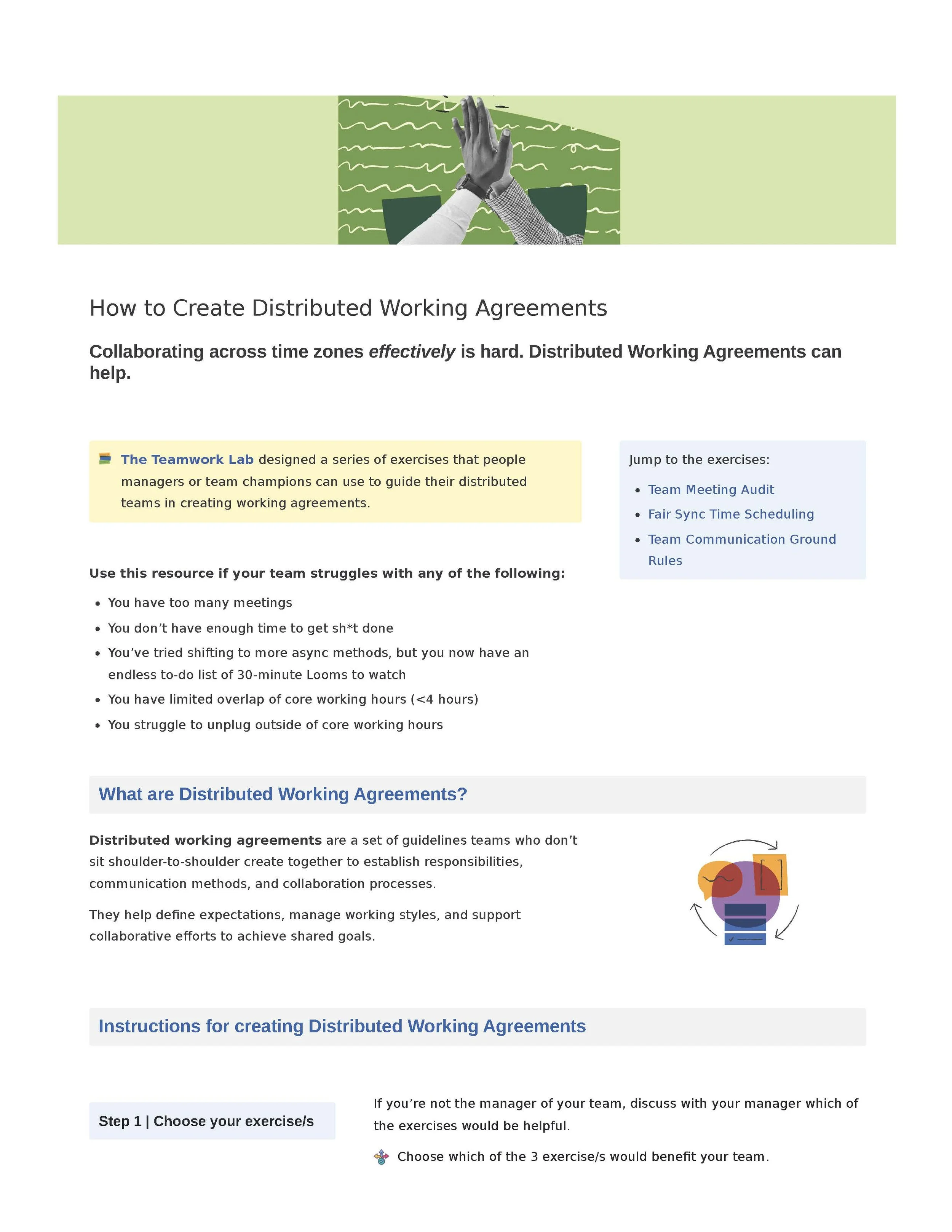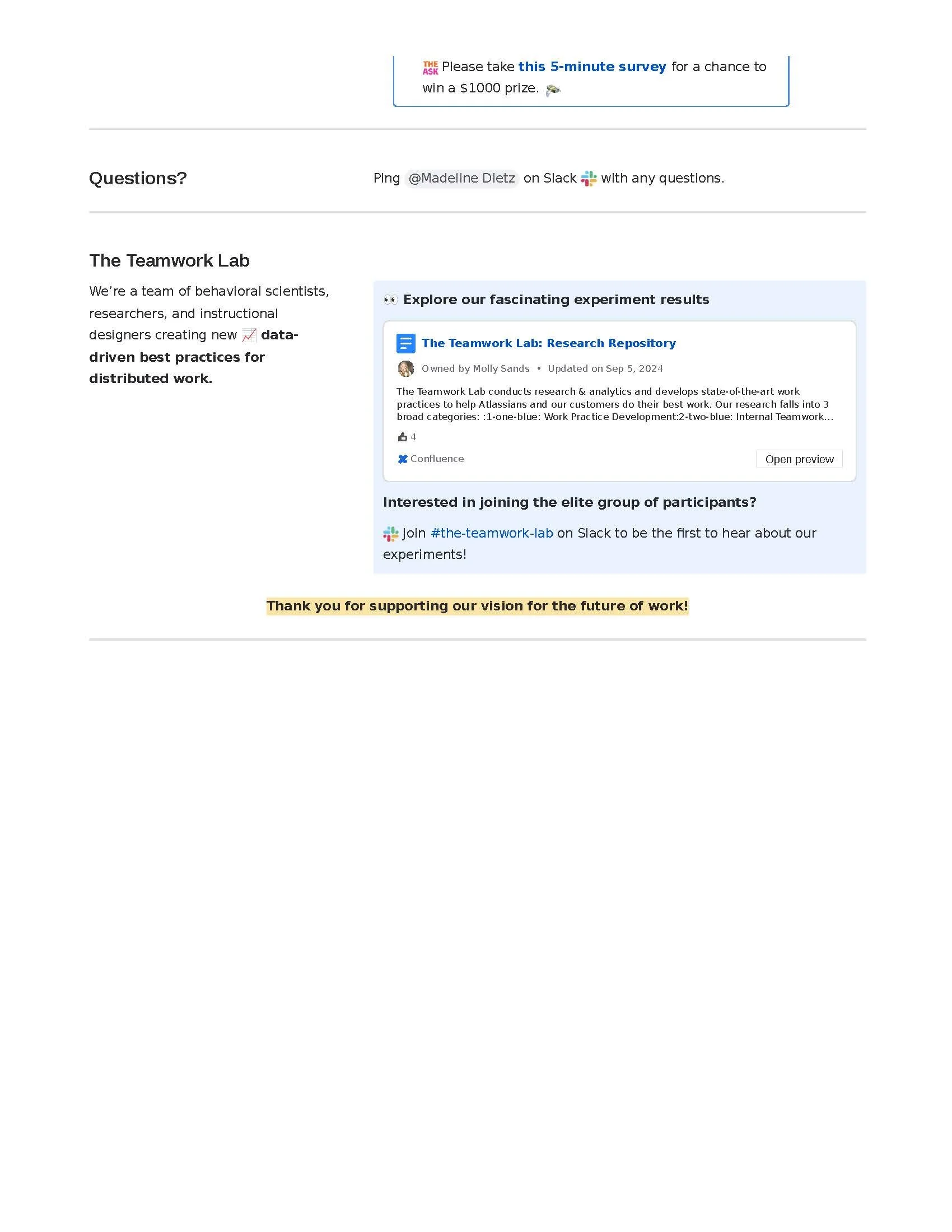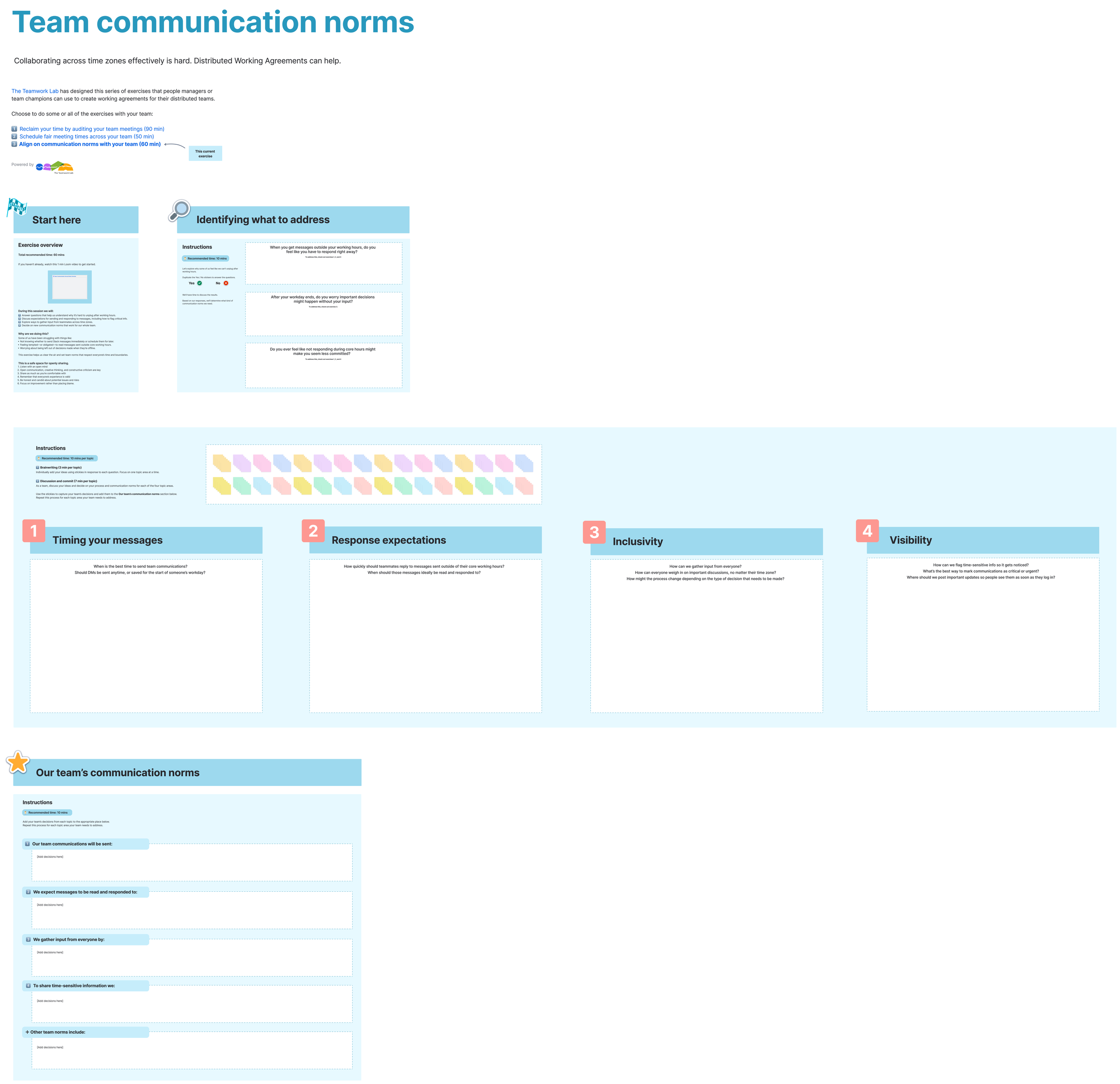Case Study: Atlassian | Teamwork Lab
The future of teamwork: One whiteboard at a time
Empowering distributed teams to co-create their own ways of working—through collaborative whiteboards, behavioral science, and practical learning design.
Quick Facts
Role: Learning Experience & Content Designer
Deliverable: 3 modular team plays with facilitator toolkits
Learners: Global, distributed Atlassians
Challenge + Context
As Atlassian embraced a fully distributed model, it was inevitable that teams might struggle with the realities of working across time zones.
The Teamwork Lab had heard these challenges directly from Atlassians through internal interviews and research sessions. To address them, we set out to create an evidence-based, scalable way for teams to define their own Distributed Working Agreements—ground rules for when and how they collaborate.
Approach + Solution
Partnering with behavioral scientists and researchers in the Teamwork Lab, I designed a suite of facilitator-ready learning resources that teams could run together in real time—either synchronously or through hybrid async formats.
Each play was designed as a Confluence-based guide and whiteboard exercise built to help teams co-create their own collaboration norms.
For this program, I:
Designed three modular plays that tackled specific distributed-work challenges
Developed facilitator toolkits with:
Step-by-step instructions and example Slack and calendar messages
Pre-built Confluence whiteboards for teams to fill out together
Tools Used
Confluence, Confluence Whiteboards, Loom, Google Workspace, and Atlassian content design system
Design Foundations
Learning Experience Design • Human-Centered Design • Behavior Change Models • Adult Learning Theory (Knowles) • Constructivism and Social Learning Theory • Experiential Learning Cycle (Kolb) • UX/UI Design Principles
Soft Skills
Project management, cross-functional collaboration, communication with behavioral scientists, and iterative problem-solving under ambiguity, iterative feedback integration
Facilitator Toolkits: Plays + Whiteboards
1 | Build fairness into your team’s meeting schedule:
Goal: Align on meeting times that respect global time zones and personal boundaries.
2 | Reclaim your time by auditing your team meetings
Goal: Evaluate which meetings could shift to async to free up focus time.
3. Align on communication norms with your team
Goal: Co-create clear expectations around messaging, availability, and unplugging.
Impact
Across 57+ Atlassian teams that participated in the research phase:
85% gained clarity on how to use async tools like Loom and Slack more effectively instead of meetings.
76% reported clearer expectations for communication across time zones.
91% said their teams held better boundaries around when meetings should—and shouldn’t—be scheduled.
Teams collectively reclaimed an average of 78 minutes per week by shifting status updates and recurring syncs to async formats.
83% said they’d recommend the Distributed Working Agreements program to other teams.


















